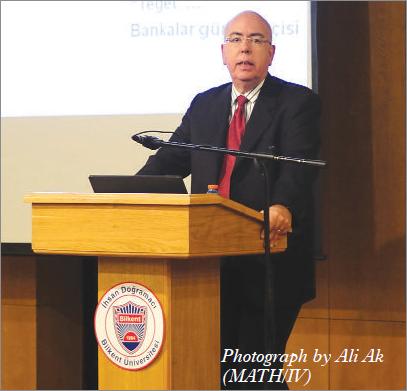Former Central Bank Governor Discusses Monetary Policy
BY EMİRHAN KAYA (IR/III)
 In February 22, Süreyya Serdengeçti, former governor of the Central Bank of the Republic of Turkey, gave a seminar entitled "Monetary Policy, Where To?" as part of the "Turkish Economy Seminars for Everyone" series.
In February 22, Süreyya Serdengeçti, former governor of the Central Bank of the Republic of Turkey, gave a seminar entitled "Monetary Policy, Where To?" as part of the "Turkish Economy Seminars for Everyone" series.
Mr. Serdengeçti first discussed the monetary policy of the Central Bank since 2001, including that of his own term (2001-2006) as well as that of the current governor, Erdem Başçı. He devoted particular attention to the periods of crisis, the ways in which the Central Bank has responded to developments in the global economy and the measures it has taken to achieve its goals.
He stated that the independence of the Central Bank was decreed by law in 2001, and that in the time since then, the introduction of a free-floating exchange rate regime and an inflation-targeting regime have been key steps. However, he added, the economic turbulence of 2006 and the Central Bank's late response to it led to a loss of credibility.
Turning to the problems of monetary policy, Mr. Serdengeçti drew attention to the phenomenon of "hot money" -- namely short-term capital inflows between financial markets -- the current account deficit, financial stability and the ongoing fiscal policy of the country's governments. He noted that as a result of the dominance of hot money in financial markets, the Central Bank changed its policy at the end of 2010 to maintain financial stability.
He concluded that the Central Bank has always been in the limelight, and that it needs more support from other economic institutions to achieve its targets. He also noted the inconsistency between having a functioning market economy and targeting all the macro aggregates at the same time. After his presentation, Mr. Serdengeçti took questions from the audience, which focused primarily on the future of the Turkish economy and the policies of the Central Bank.